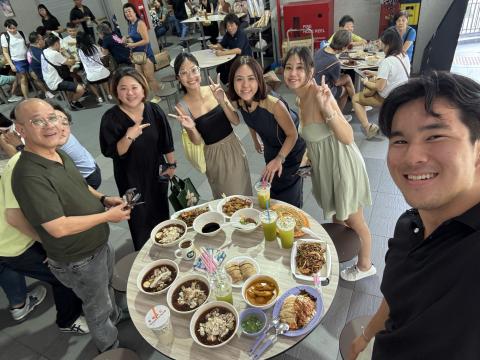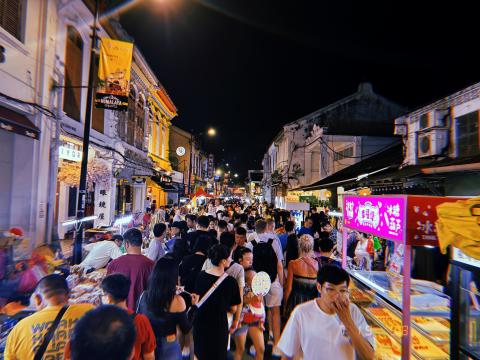
As I hit the halfway point of my study abroad experience in Singapore, I can confidently say it has been more than I ever expected in the best way possible. From weekend trips, like a recent getaway to Malacca, Malaysia, to deeply fulfilling work at my internship, every day feels rich with learning. I've also grown surprisingly close with my team, and our lunchtime adventures across the island have been some of the most memorable moments.
That said, one thing I didn't anticipate was how my identity would be perceived. Back in the US, I was often jokingly told that I was "very Asian" for the food I ate, the languages I spoke, or the mannerisms I had. But here in Singapore, I've gotten playful remarks from coworkers and locals calling me "very American." I don't take offense to it, but it is interesting and at times awkward. Being an even mix of Japanese, Chinese, Taiwanese, and American, I've realized I exist in this in-between space. I'm very Asian in the US, and very Western here. I don't fully belong to any one culture, and that used to feel like a limitation. But here in Singapore, it's a strength.
My multicultural identity has opened doors to connections I never expected. Being seen as whitewashed here means my coworkers go out of their way to help me see the real Singapore, taking me to family run kopitiams, back alley hawker stalls, and heartland coffee shops that tourists would never find. And on the flip side, when I'm in more touristy areas, I can tap into my American identity and navigate easily. When I'm in a hawker center ordering dumplings in Mandarin, I'm able to connect with local uncles in a completely different way. I've come to appreciate the immense privilege of being able to move through multiple cultural spaces fluently.
Image
In terms of culture shift, I've experienced what's often called the "honeymoon" and "negotiation" phases. At first, everything felt new and exciting. Clean streets, multilingual signs, incredible food, and efficiency everywhere. But soon, subtle challenges emerged: the indirect communication style, the strict rules, even the way locals keep to themselves. My initial reaction was confusion. Am I being cold, or respectful? Too enthusiastic, or just American? I've responded by observing more, asking questions, and giving myself leeway to get things wrong sometimes. It has helped me grow more culturally adaptive, which I know will serve me forever.
Above all, this experience has made me reflect on the value of fluid identity. If you, like me, have ever felt like you don't fit neatly into one box, I hope you'll see that as a superpower. In a globalized world, being able to bridge cultures is an asset that allows us to connect, understand, and grow in ways most people never get to.
Logan Adams, Diverse Duck Ambassador
